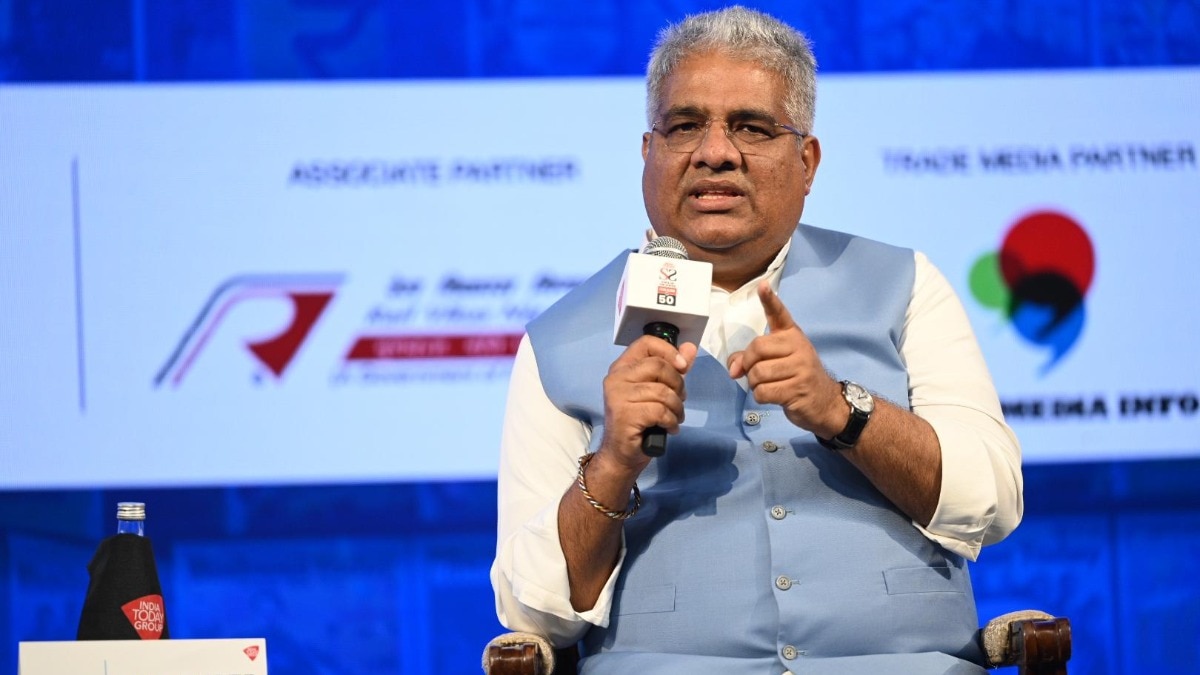For developing countries to pursue low-carbon growth, developed nations must move beyond promises and provide tangible support—through finance and technology access—Union Environment Minister Bhupender Yadav said on Friday. He was speaking at Business Today’s India’s Most Sustainable Companies Summit & Awards 2025, where he underlined the need for climate action rooted in equitable global cooperation.
Calling for a more balanced approach to climate responsibility, Yadav stressed that countries still focused on basic development must be supported by those who have already benefited from a century of fossil-fuel-led industrial growth.
“The civilisation we live in is energy-based—whether it’s railways or rockets, factories or homes, all run on power. But with every unit consumed, there’s a cost: carbon emissions. If the West has gained from industrial progress, it should also support countries still addressing basic development needs. It’s not just about responsibility—it’s about shared global commitment,” he said.
India has long advocated for climate justice and the principle of Common But Differentiated Responsibilities (CBDR) in international forums, arguing that developed economies must take the lead in financing and enabling green transitions across the Global South.
Yadav said that India has already met its 2030 climate targets ahead of schedule, making it the only G20 country to do so. “India is the only G20 nation to achieve its 2030 climate targets nine years ahead of time—proving that economic growth and environmental responsibility can go hand in hand,” he said.
Under its Paris Agreement commitment, India had pledged to reduce the emissions intensity of its GDP by 33–35% from 2005 levels by 2030. According to government estimates, this target was met by 2023, aided by increased adoption of renewables, improved energy efficiency, and regulatory interventions. Non-fossil fuel power capacity now exceeds 180 GW, with momentum building in sectors such as electric mobility, green hydrogen, and sustainable agriculture.
Highlighting domestic efforts, Yadav spoke of India’s investments in ecosystem restoration, biodiversity, and afforestation. “We have expanded our tiger reserves, grown the number of Ramsar sites to 91, and are planting 140 crore trees annually. These efforts are supported by both policy and community action,” he said.
India now has over 50 tiger reserves and has significantly increased the number of wetlands recognised under the Ramsar Convention. These measures support biodiversity, water conservation, and community resilience—especially in climate-vulnerable regions.
Addressing the broader global narrative on emissions, Yadav noted that while India is among the top emitters in absolute terms, it ranks far lower on per capita emissions. “Yes, India is the fourth-largest emitter, but with 17% of the world’s population, our per capita emissions are among the lowest—even below Ethiopia. This reflects our development model and lifestyle,” he said.
According to the International Energy Agency, India’s per capita CO₂ emissions in 2023 were around 1.9 tonnes—less than half the global average of 4.7 tonnes.
The India’s Most Sustainable Companies Summit 2025 brought together industry leaders, policymakers, and sustainability experts to explore how Indian companies can grow responsibly while aligning with the country’s climate commitments. Thirteen companies won awards across fifteen categories and were recognised at the event for integrating environmental, social, and governance (ESG) principles into their business strategies.







